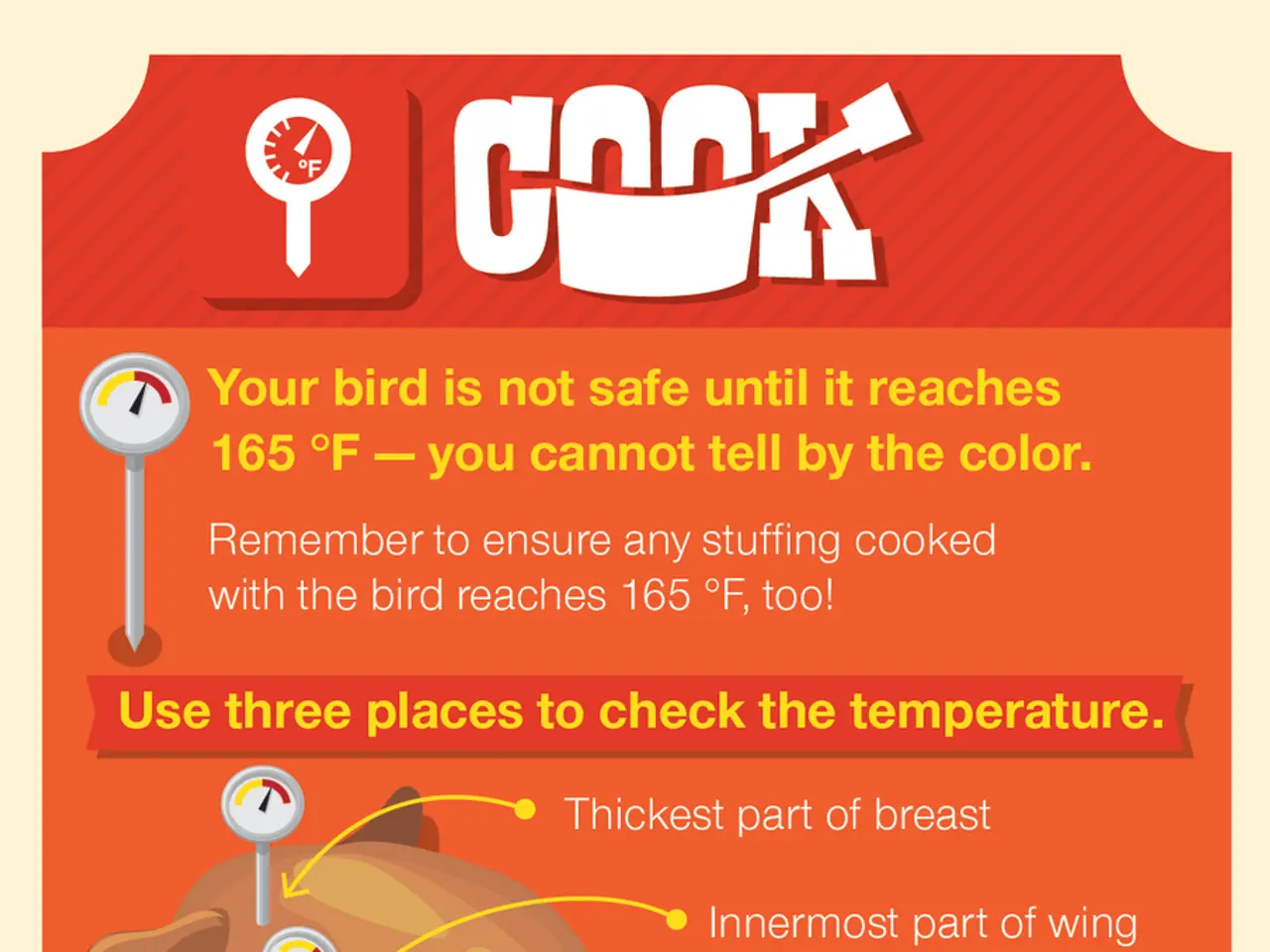Farming Hardship: Spread of Avian Flu Wipes Out Bird Populations Among Ranchers
The avian flu outbreak has brought about a nationwide crisis, affecting both farmers and consumers due to the egg shortage it has caused. This outbreak has hit hard on egg producers like Herbruck's Poultry Ranch, with CEO Greg Herbruck emotionally affected by the situation.
The outbreak has placed a significant financial strain on egg producers, with millions of dollars being invested in biosecurity measures to combat the virus. However, despite these investments, the avian flu continues to spread. The vulnerability of laying hens to the H5N1 virus has exposed the limitations of current biosecurity protocols.
The crisis has also led to a logistical challenge for egg producers in culling infected flocks. This emotional burden has weighed heavily on Greg Herbruck and his team at Herbruck's Poultry Ranch.
The commitment of farmers and industry professionals to finding solutions and safeguarding public health remains strong. The USDA unveiled a comprehensive vaccination plan against highly pathogenic avian influenza (HPAI) in July 2025, aiming to protect domestic poultry and stabilize production.
Biosecurity is emphasized as the best defense against the avian flu. Measures include preventing contact between domestic poultry and wild birds, controlling movement of people and equipment, and sanitization protocols. Financial aid supports producers in implementing stronger biosecurity.
Nationwide surveillance programs actively test poultry and wild birds, along with cattle herds that can also be affected. Testing before animal movement and monitoring of milk supplies help limit spread between locations and species.
States, including California, have implemented bans on poultry exhibitions and fairs to prevent transmission hotspots, especially during high-risk seasons like winter bird migration. Such bans specifically target high-risk poultry species to protect uninfected flocks.
The battle against bird flu is ongoing and the efforts of those on the front lines serve as a testament to resilience and determination. The virus spreads easily via wild birds, fomites, and human activity, making containment difficult. Nearly 175 million birds were culled in recent years, showing the economic and supply impacts.
There is also concern over maintaining export markets while deploying vaccination to avoid trade restrictions. The outbreak has led to a surge in human cases, raising concerns among experts.
In summary, prevention requires a multi-pronged approach combining vaccination rollout, strict biosecurity, active surveillance, regulated animal movement, and producer support. The main challenges lie in the virus's transmissibility via wild birds, economic impacts of culling, and international trade considerations. The unwavering dedication of industry professionals remains a key factor in the fight against bird flu.
- The avian flu's impact on business isn't limited to the agriculture industry; it's also causing a health concern due to the egg shortage.
- The health sector is struggling with a rise in medical conditions due to the lack of eggs, a vital component in food and drink.
- The epidemic has highlighted the need for workplace-wellness initiatives as mental-health issues arise from the stress of the outbreak.
- The crisis brings environmental concerns, as the increased use of cleaning chemicals affects the environment due to improper disposal.
- The science community is racing against time to research and develop effective medications and vaccines for both humans and birds affected by the flu.
- Aging populations may be particularly vulnerable to respiratory conditions exacerbated by the avian flu, as their immune systems are already compromised.
- Cardiovascular health could suffer as consumers opt for less nutritious, high-fat alternatives to lost egg products, leading to unhealthy lifestyle choices.
- The environment-science field is focused on understanding the links between climate change and the spread of avian flu, working to predict and prevent future outbreaks.
- The finance sector has been hit hard, with personal-finance concerns arising for farmers and small businesses due to the financial strain of the crisis.
- The avian flu's impact on the industry is reflective of a broader trend in environmental-science issues affecting our personal-finance stability.
- In response, data-and-cloud-computing tools are being employed to track and analyze the outbreak's progression, supporting decision-making and intervention efforts.
- The crisis has unveiled the role of education-and-self-development in fostering personal-growth, as farmers and industry professionals adapt to the evolving threat.
- The shopping industry is damaged by the disrupted supply chain, causing shortages and price hikes for non-egg items that rely on eggs as additives.
- Social media has become a platform for sharing information and resources about avian flu, as well as a venue for emotional expression from those affected.
- Career development in the poultry industry is being reevaluated in light of the outbreak, with a renewed emphasis on risk management and contingency planning.
- The gambling industry, including casino-and-gambling, entertainment, and sports-betting, is affected by the economic downturn, and sports-betting may see changes in odds due to the flu's impact on teams and competitions.
- The political landscape is shifting as candidates engage in discussions about the avian flu, proposing solutions that address both health concerns and the economic impacts.
- Public attention is drawn to the culture and ethics of the casino industry, as some argue that casinos contribute to mental-health issues and do not prioritize environmental concerns.
- The general-news media plays a crucial role in keeping the public informed about the flu, reporting on the latest research and policy developments while paying attention to crime-and-justice issues related to the outbreak.






